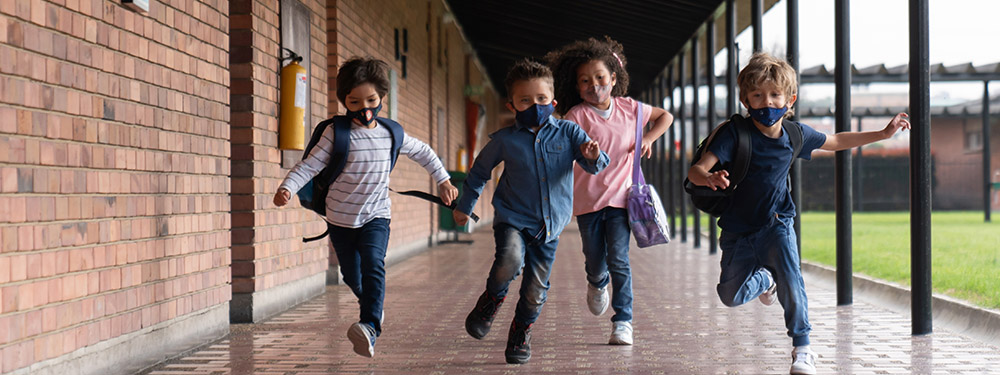
Beatrice Merrick, CEO at Early Education, considers the importance of keeping the principle of the ‘unique child’ front and centre when navigating current challenges for Early Years pupils and will be exploring this further at SSAT’s Primary Conference later this month as a keynote speaker
It is a fundamental principle of the Early Years Foundation Stage that each child is unique. Nevertheless, when considering cohorts of children, it is – or, at least until the pandemic, it was – possible to talk about “typical” development. The extraordinarily untypical nature of the last two years, however, has hugely increased the unpredictability of children’s past experiences. Have they spent more time than previously in front of screens, or more time at home interacting with parents and siblings, or both? To what extent have they spent time with wider family members, peers and in the local community? Have they routinely visited parks, libraries and had routine outings like bus trips to the shops? How much time – if any – have they had in an early years setting? Crucially, what more challenging experiences may they have had of family bereavement, physical and mental illness, parents losing jobs and increased poverty?
What has been the impact of these different experiences, and how should schools respond?
The government agenda of early years providers delivering “school ready” children to Reception classes has always been problematic. We know that it is not only children, but also their parents, and most importantly schools that need to be “ready” for children. The challenge now is to know for what to be ready.
While that may sound challenging, practitioners do not suddenly need to develop a whole new toolkit of approaches. They simply need to go back to the core principles of their early years pedagogy and consider how the fundamentals of the EYFS apply. Feedback from our members is that many of them found it a positive experience to revisit those core principles to ensure that they meet children where they are and plan their teaching accordingly.
Many settings increased the time they spent outdoors during the pandemic, in part as a good form of infection control. But we also know that more time outdoors helps children’s wellbeing and physical development, encourages positive social interactions, and supports communication and language. Hence, continuing to give children lots of time outdoors fits well with what children may need. The importance of these prime areas of learning is now more evident than ever, and early years practitioners understand that all of these need to be secure to help children to be settled and ready to learn, rather than rushing to implement “catch up” programmes in maths and literacy. The holistic approach to learning which is fundamental to the EYFS means it is not a case of “either/or” but about giving children rich experiences which foster all aspects of learning.
Post-pandemic, children may at times need more scaffolding and support than previous cohorts. Those who spent less time – or no time – in an early years setting, need help adjusting to being with other children, to routines and to separating from their parents. This might be to how to play alongside and with other children or communicating their wants and needs and understanding and managing their own emotions. All of this needs attuned adults who respond sensitively to support children in becoming confident and capable in these new situations. The impact of Covid on staff absences and school budgets continues to be a challenge for schools, which may impact on the continuity and availability of staffing when both are much needed.
The Reception year is part of the EYFS, so it should in theory be perfectly possible to accommodate all these issues within it. However, if inappropriately formal expectations are set for Reception, such as children spending long periods sitting down for direct instruction in maths or phonics, then many children will struggle even more this year than previously. Similarly, it has always been the case that children going into Year 1 who have not achieved their Early Learning Goals should be entitled to continued EYFS provision.
This is more than ever needed so that children achieve the foundations that will allow them to progress later on, and while we hear positive reports of schools which are taking a flexible approach to allow this, there is something of a contrast with the government rhetoric of “catch-up” through a limited programme of interventions in Reception. If schools and teachers keep focused on the EYFS principle of the unique child, they need not be constrained to a particular agenda, and can concentrate on what is right for individual children coming out of the “unprecedented” experiences of the pandemic.
Beatrice Merrick is Chief Executive of Early Education, the subject association for the early years, which provides professional learning opportunities and resources for anyone working in the early years. Membership is open to individuals and schools. More details can be found at: www.early-education.org.uk.
